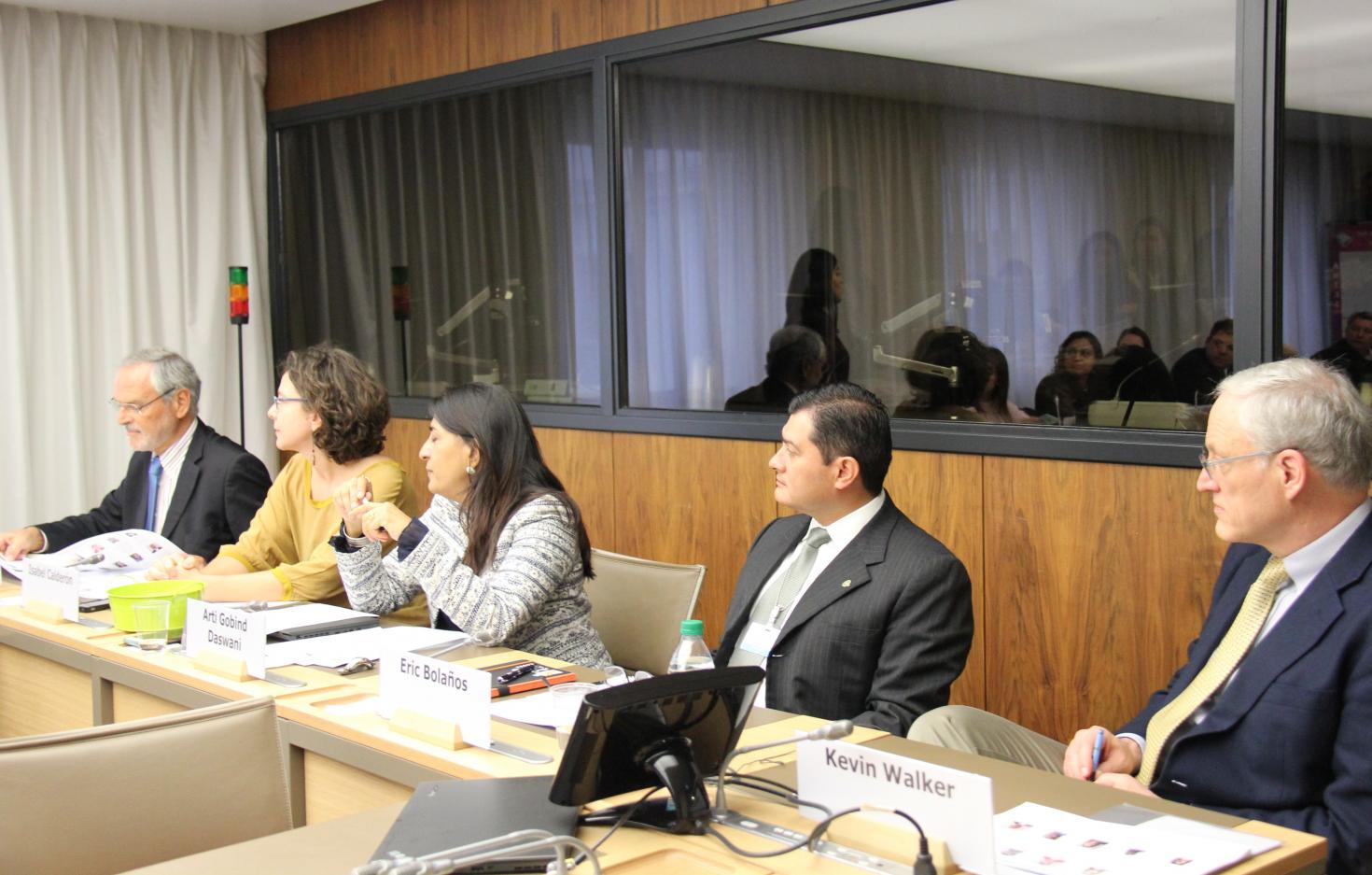The course will be delivered in a face to face format in Geneva, Switzerland, and will be attended by 25 specialists in the area. The training will take place over the next three weeks.

San José, Costa Rica, 24 October 2018 (IICA). The Inter-American Institute for Cooperation on Agriculture (IICA) will be one of the entities providing training in the World Trade Organization (WTO) course. The course will enable 25 specialists from 11 Latin America and Caribbean (LAC) countries, who are working in agricultural health and food safety, as well as trade-related matters, to study and engage in the practical application of the Agreement on Sanitary and Phytosanitary Measures (SPS) of this organization, which regulates the standards governing trade between different nations.
Representatives from Argentina, Chile, Colombia, Costa Rica, Cuba, Ecuador, Guatemala, Mexico, Panama, Paraguay and Peru will participate in the training, which began this Monday in Geneva, Switzerland, and will continue until November 9.
The Agreement on the Application of SPS establishes the basic rules for regulations on food safety, animal health and the preservation of vegetables, and is applicable to all measures that may directly or indirectly affect international trade.
IICA Agricultural Health and Food Safety Specialist, Eric Bolaños, who is one of the instructors, explained that the course will provide the selected professionals with an in-depth understanding of the rights and obligations arising under the Agreement on the Application of SPS and of the role of the WTO Committee specializing in this area.
The participants will also learn about the necessary procedures to detect and tackle problems in implementing measures in their countries, as well as how to spearhead initiatives to make effective use of the various provisions of the agreement, including those focusing on gaining and maintaining market access.
Bolaños maintained that, “This advanced course provides a tool and an ideal opportunity to strengthen human capital in these countries, and to put them on the path to better and more extensive and sustainable application of the WTO’s SPS Agreement, thereby benefiting trade and the sanitary and phytosanitary status of the region”.
The course will also provide technical guidance to the participants in developing a sanitary and phytosanitary action plan, which they will implement on returning to their countries.
There will be a scheduled visit to the Maison Cailler chocolate factory and to Nestlé’s headquarters in Switzerland to inform participants about the food safety management procedures and early warning systems of this company, which is involved in food trade at the international level. Participants will also attend meetings of the SPS Committee – a forum that meets three times per year and offers its members a platform to exchange and discuss sanitary and phytosanitary matters.
More information:
Eric Bolaños, Agricultural Health and Food Safety Specialist, IICA.











